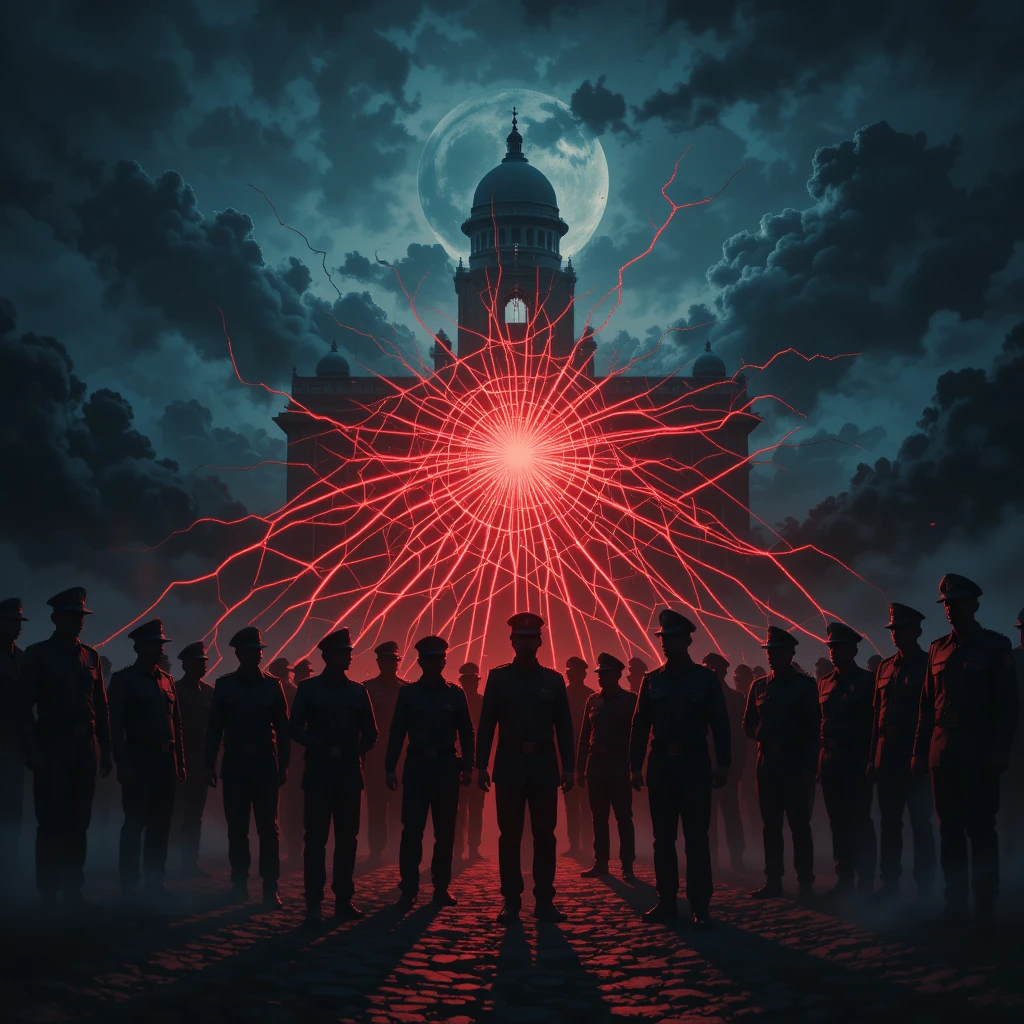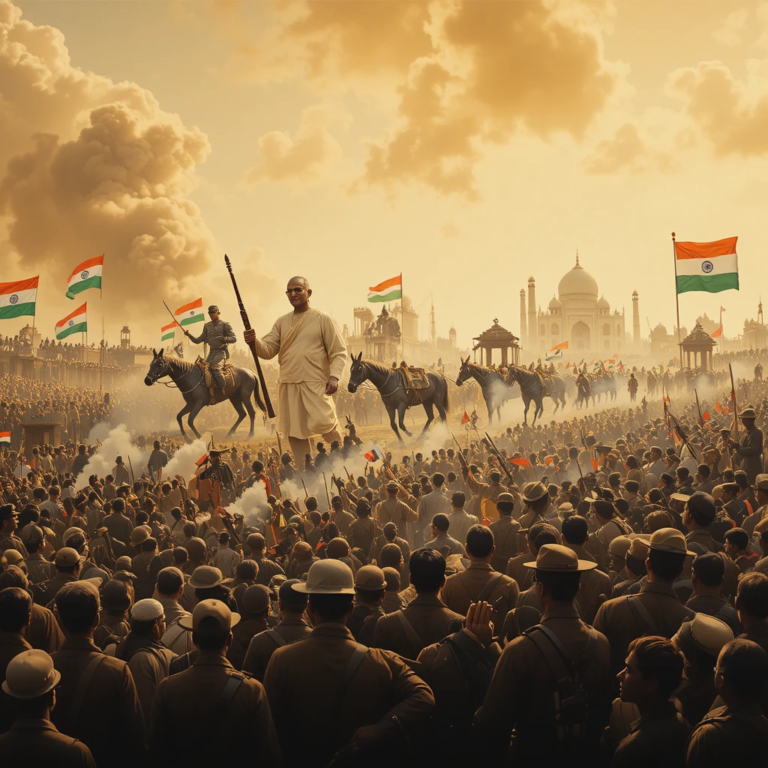Josy Joseph’s The Silent Coup: A History of India’s Deep State (Context/Westland, 2021) is a searing exposé of how India’s non-military security establishment—comprising agencies like the Central Bureau of Investigation (CBI), National Investigation Agency (NIA), Intelligence Bureau (IB), Anti-Terrorism Squad (ATS), Enforcement Directorate (ED), and Income Tax Department—has been co-opted by political powers to undermine the democratic fabric of the nation. Through meticulous investigative journalism spanning over two decades, Joseph argues that India’s democracy, while never facing a military coup, is experiencing a “silent coup” through the systematic misuse of its security apparatus. This article provides a comprehensive analysis of the book, its key themes, structure, and arguments, with a specific focus on its treatment of the 7/11 Mumbai train blasts and the recent Bombay High Court judgment in July 2025, which acquitted all 12 accused in the case. Drawing on reviews, web sources, and posts on X, the article also contextualizes the book’s relevance to contemporary India.
Table of Contents

Overview of The Silent Coup
Josy Joseph, an award-winning journalist and founder of Confluence Media, builds on his earlier work, A Feast of Vultures (2016), which exposed systemic corruption in India’s governance. In The Silent Coup, he shifts focus to the non-military security establishment, arguing that agencies meant to protect citizens have become tools of political control, eroding constitutional values. The book contends that the “war on terror” since the 1980s, intensified post-9/11, has warped these institutions, leading to fabricated terror plots, torture, and systemic bias, particularly against Muslims. Joseph frames this as a “deep state”—a network of unaccountable institutions serving political and business interests rather than national security.
The book’s relevance is underscored by India’s declining democratic ratings, with organizations like Freedom House labeling it “partly free” and V-Dem classifying it as an “electoral autocracy” in recent years. Joseph’s narrative is both a historical analysis and a warning, supported by case studies like the 7/11 Mumbai train blasts, which exemplify the security establishment’s failures and abuses.
Structure and Narrative
The Silent Coup is divided into two parts, blending personal stories with systemic critique to illustrate the human and institutional toll of India’s security policies:
- Part One: The Human Cost
The first section centers on Wahid Deen Mohammed Sheikh, a Mumbai-based schoolteacher repeatedly arrested and tortured on false terror charges, including links to the 7/11 Mumbai train blasts. Wahid’s ordeal highlights the security establishment’s reliance on fabricated evidence, sham narco-tests, and media manipulation. For instance, Joseph details how Wahid was subjected to narco-tests by Dr. Malini, a discredited forensic “expert” who conducted over 1,000 narco-tests and 3,000 lie-detection tests with fake credentials before being sacked in 2009. During Wahid’s tests, ATS officers dictated questions and answers, revealing a pattern of coercion. This section exposes the human toll of systemic bias, particularly against Muslims, who are often scapegoated to create a facade of counterterrorism success. - Part Two: Systemic Decay
The second part broadens the scope to analyze how India’s security agencies have degenerated into political tools. Joseph examines major security challenges, including the 7/11 Mumbai train blasts (2006), the 26/11 terror attacks (2008), the Kashmir insurgency, Northeast unrest, and the Indian Peace-Keeping Force’s failures in Sri Lanka. He argues that the increasing sophistication of militancy overwhelmed agencies, leading to unethical shortcuts like fake encounters, fabricated terror plots, and even the creation of fictitious militant groups. A notable example is a 2015 case where a Military Intelligence officer concocted an assassination threat against Narendra Modi to gain favor, reflecting how agencies exploit the political narrative of a “tough on terror” stance. Joseph also critiques the “Gujarat model” of counterterrorism, characterized by aggressive policing and questionable investigations, which became a national blueprint after 2014.
The 7/11 Mumbai Train Blasts in The Silent Coup
The 7/11 Mumbai train blasts, which occurred on July 11, 2006, are a pivotal case study in The Silent Coup. Seven coordinated bomb blasts ripped through Mumbai’s Western Railway local trains during evening rush hour, killing 189 people and injuring over 820. The Maharashtra Anti-Terrorism Squad (ATS) investigated the case, leading to the arrest of 13 individuals, primarily Muslims, who were charged under the Maharashtra Control of Organised Crime Act (MCOCA). In 2015, a special MCOCA court convicted 12 of them, sentencing five to death and seven to life imprisonment, while acquitting one, Wahid Sheikh, after nine years in jail.
Joseph uses the case to illustrate systemic flaws in India’s security establishment. He highlights how the ATS, under pressure to deliver results, relied on coerced confessions, questionable evidence, and fabricated narratives. Wahid’s story is central to this critique. Arrested multiple times since 2001 for alleged terror links, Wahid was tortured and subjected to narco-tests manipulated by ATS officers. Joseph notes that the ATS turned informants like Wahid into scapegoats, a tactic used to muddy intelligence and create a false sense of resolution. The book argues that such practices not only failed to catch the real culprits but also allowed the 26/11 attacks to occur due to ignored intelligence alerts.
Joseph also critiques the media’s role in amplifying ATS narratives without scrutiny, noting that journalists, under deadline pressures, often spread unverifiable information, further stigmatizing the accused. The 7/11 case exemplifies how the security establishment’s unprofessionalism and bias—evidenced by the underrepresentation of Muslims in agencies like the Maharashtra police (1% Muslim)—undermine justice and public trust.
Bombay High Court Judgment (July 2025)
On July 21, 2025, the Bombay High Court delivered a landmark judgment acquitting all 12 accused in the 7/11 Mumbai train blasts case, overturning the 2015 MCOCA court verdict. The special bench of Justices Anil Kilor and Shyam Chandak issued a scathing critique of the ATS investigation, declaring that the prosecution “utterly failed” to prove the case beyond reasonable doubt. The 671-page judgment highlighted several critical flaws:
- Coerced Confessions: The court found that the confessional statements of 11 accused were inadmissible, as they were extracted through “inhuman and barbaric” torture, including beatings, electric shocks, and sleep deprivation. Medical reports from King Edward Memorial and Bhabha hospitals corroborated these allegations. The confessions were strikingly similar, with verbatim phrasing and grammatical errors, suggesting they were scripted.
- Unreliable Witnesses: The prosecution’s case relied on eight witnesses, including taxi drivers and those claiming to have seen bomb assembly. The court noted that witnesses remained silent for over 100 days, with some identifying the accused after four years, which was deemed “abnormal” and unreliable. One witness, who claimed to have seen bomb-making, contradicted himself during cross-examination, admitting he relied on hearsay.
- Procedural Lapses: The invocation of MCOCA was deemed unlawful due to the lack of prior sanction by a competent authority (a Deputy Inspector General of Police). The Test Identification Parade (TIP) was invalid, as the Special Executive Officer lacked authority. The prosecution also failed to identify the type of explosive used, and key evidence like Call Data Records (CDRs) was destroyed by ATS officers.
- Systemic Failures: The court criticized the ATS for creating a “false appearance of having solved a case,” which undermined public trust while letting the real perpetrators remain at large. The bench noted that the accused, who spent 19 years in jail, were subjected to prolonged custody (up to 76 days) and retracted their confessions immediately upon entering judicial custody.
The acquittal was a significant blow to the ATS and the prosecution, with defense lawyers like Yug Mohit Chaudhry calling it a “sign of hope for those wrongly incarcerated.” However, the verdict sparked anguish among victims’ families and political leaders, with Maharashtra Chief Minister Devendra Fadnavis calling it “very shocking” and vowing to challenge it in the Supreme Court. On July 24, 2025, the Supreme Court issued notices to the accused and stayed the Bombay High Court’s judgment as a precedent for other MCOCA cases, though it did not order the re-arrest of the accused, who had been released.
The judgment validates Joseph’s arguments in The Silent Coup about the ATS’s reliance on torture and fabricated evidence. Posts on X echoed this sentiment, with users like @TheDeshBhakt citing the book to highlight how agencies routinely frame innocents, particularly Muslims, in terror cases. @darab_farooqui noted that the acquittal exposed “torture to extract confessions” as an “oldest trick in the book.”
Key Themes and Arguments
- Silent Coup and Democratic Erosion
Joseph’s central thesis is that India’s democracy is being subverted through a “silent coup” by non-military agencies acting as political enforcers. The 7/11 case exemplifies how agencies like the ATS prioritize political narratives over justice, undermining the rule of law. - Systemic Bias Against Minorities
The book highlights deep-seated anti-Muslim bias in the security establishment, with data showing only 1% Muslim representation in Maharashtra police and 2.3% among Uttar Pradesh sub-inspectors. The 7/11 case, where all accused were Muslims, reflects this prejudice, with innocent individuals like Wahid tortured to fit a narrative of Muslim terrorism. - Media Complicity
Joseph criticizes the media for amplifying agency narratives, as seen in the 7/11 case, where unverified ATS claims were widely reported. He reflects on his own role as a journalist, noting how deadline pressures lead to unchecked reporting that stigmatizes the accused. - Corruption and Unaccountability
The security establishment’s lack of oversight fosters corruption, with agencies profiting from fabricated threats. The 7/11 investigation’s reliance on coerced confessions and destroyed evidence highlights this unaccountability. Joseph also cites cases like the Punjab police’s misuse by Reliance Industries to harass individuals, illustrating how agencies serve business interests. - Historical Context
Joseph connects current abuses to historical security challenges, noting that tactics like creating fake militant groups originated in the Northeast. The 7/11 case reflects a broader pattern of unprofessionalism, with ignored intelligence alerts contributing to failures like the 26/11 attacks.
Conclusion
The Silent Coup is a powerful critique of India’s security establishment, exposing how agencies like the ATS have subverted democracy through fabricated evidence, torture, and bias. The 7/11 Mumbai train blasts case, detailed in the book and revisited in the 2025 Bombay High Court judgment, serves as a stark example of these failures. The acquittal of all 12 accused after 19 years of incarceration, due to coerced confessions and unreliable evidence, underscores Joseph’s warning about a “silent coup” eroding India’s democratic values. While the Maharashtra government’s appeal to the Supreme Court keeps the case alive, the judgment validates the book’s call for accountability and reform. Available in paperback (₹213–₹699), eBook, and audiobook formats, The Silent Coup is an essential read for understanding the dark underbelly of India’s security apparatus and its threat to democracy.




